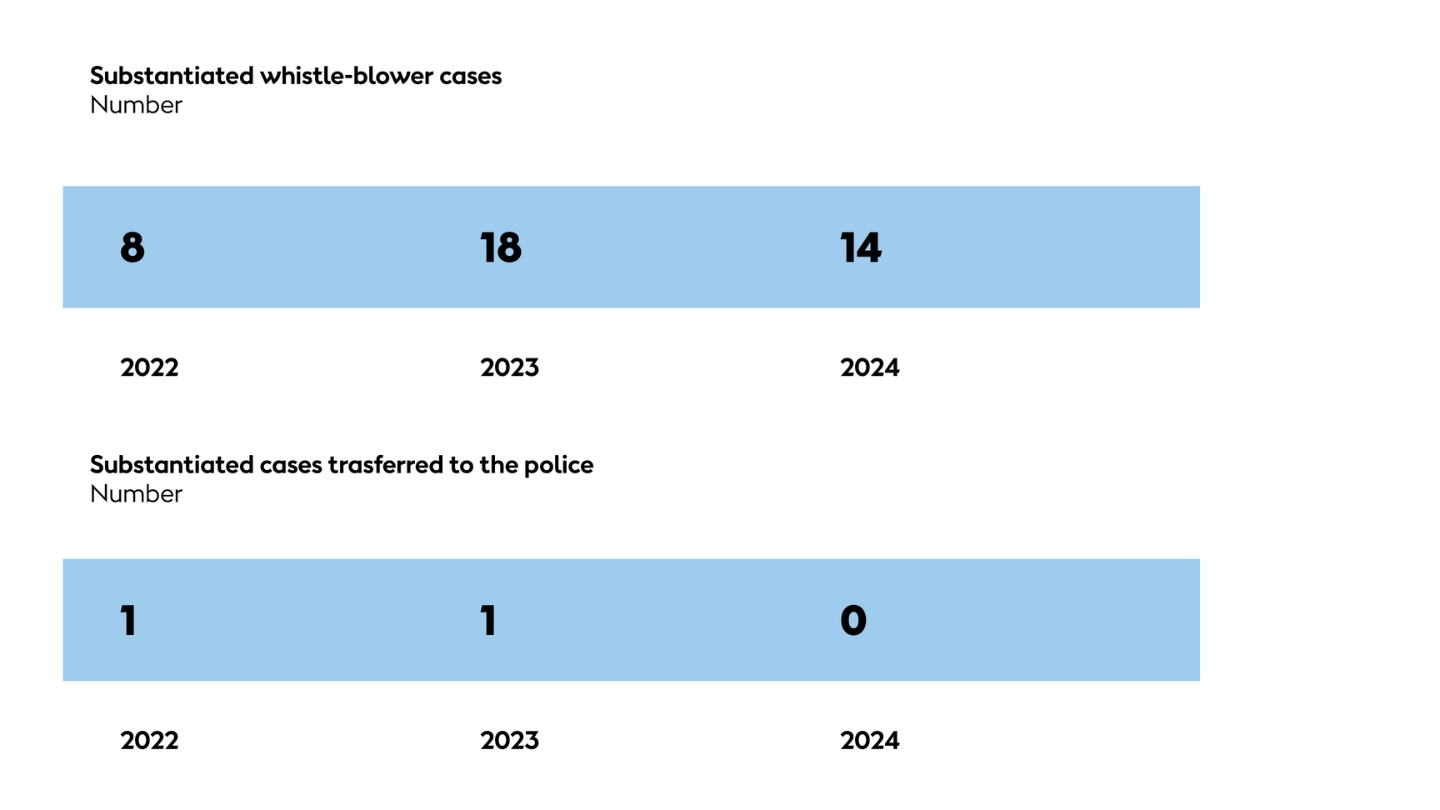Why is good business conduct important?
At Ørsted, we respond to the financial, technical, commercial, and ethical challenges that we face every day, both as a business and as individuals. We do so by acting with integrity in our dealings with all stakeholders. Our good business conduct policy is intended to give guidance to all our employees on Ørsted’s expectations regarding their behaviour.
